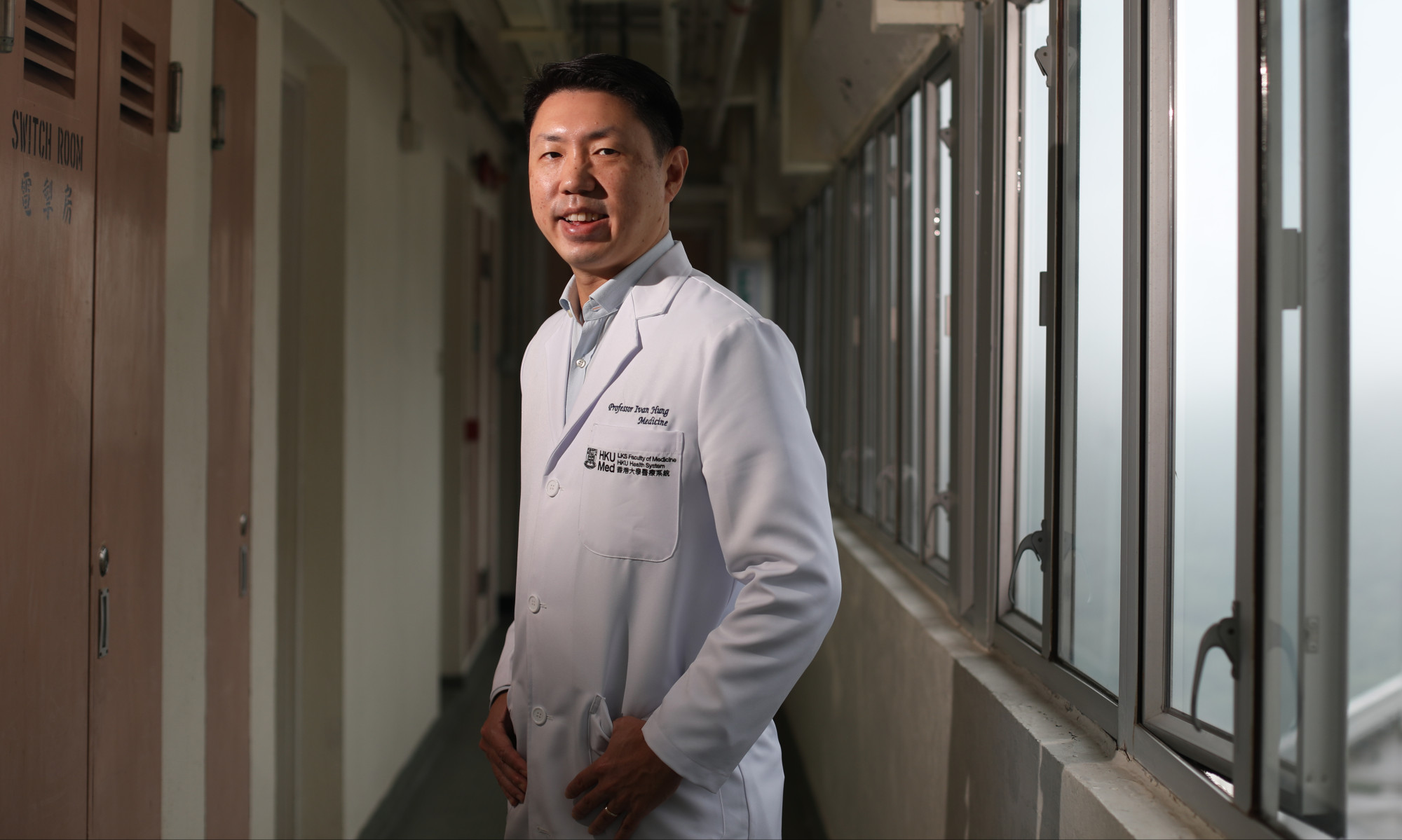
What is a pneumococcal infection? Hong Kong NGO says half of at-risk residents don’t know, with experts calling for more free jabs
- Half of at-risk residents aged 50 and above unaware that pneumococcus bacteria is common cause of pneumonia, ranked city’s second-deadliest condition last year
- ‘With pandemic prevention measures relaxing, we’re seeing a resurgence of serious illnesses linked to pneumococcal infections back to pre-Covid levels,’ expert says
Half of Hongkongers at risk of contracting pneumococcal infections are clueless about the disease, a survey has found, with experts urging authorities to expand a free jab scheme combating the bacteria linked to the city’s second-deadliest medical condition.
The study published by the Hong Kong Alliance of Patients’ Organisations and Polytechnic University’s nursing school on Sunday also discovered that three-fifths of respondents had yet to receive any pneumococcal vaccination.
The poll was conducted between June and August this year to learn more about residents’ understanding of the bacteria and where to get vaccinated, with the survey covering 2,014 people aged 50 and above.
Nearly 80 per cent of adult Hongkongers not vaccinated against pneumococcus: survey
Pneumococcus, a bacteria found in the upper respiratory system, is one of the most common causes of pneumonia, which was ranked as the second deadliest in Hong Kong after cancer and linked to 10,499 deaths last year.
“With pandemic prevention measures relaxing, we’re seeing a resurgence of serious illnesses linked to pneumococcal infections back to pre-Covid levels,” said Hong Kong Geriatrics Society president Stanley Tam Kui-fu.
The Centre for Health Protection recorded 37 cases of pneumococcal infections in Hong Kong between May and July of this year. In comparison, the city logged 29 cases over the same period in 2019.
“The elderly, particularly those grappling with chronic diseases, are at a significant risk. Their likelihood of hospitalisation due to pneumococcal pneumonia is more than 10 times higher than those aged 18 to 49,” Tam said.

Government figures showed only about 42 per cent of residents aged 65 and above had received a pneumococcal vaccination during the 2022-23 season.
The survey found that half of the 2,014 people interviewed were at high risk of contracting a pneumococcal infection. A further breakdown showed a quarter were diabetic, 16 per cent had long-term cardiovascular diseases and 9 per cent were obese.
Half of all interviewees admitted to not knowing about vaccination options, while 50 per cent said they were unaware of any government subsidies on offer or the city’s free jab scheme for those aged 65 and above.
70% of Hongkongers at risk of chronic kidney disease refuse treatment: doctors
Under the initiative, potential recipients must be considered as being at high risk of infection, and staying at a public hospital or living in a care home for the elderly or disabled.
Polytechnic University nursing professor Angela Leung Yee-man, who led the research effort, said: “The survey results show that, in addition to strengthening disease education, information about vaccines needs to be more targeted and easier to understand to increase the vaccination rate among the elderly.”
Local authorities currently offer two types of pneumococcal vaccines that inoculate patients against either 13 or 23 antigen strains, which are also available at private clinics for HK$800 (US$102) and HK$400, respectively.
Healthcare specialists cool to expanded Hong Kong elderly voucher scheme
Two new jabs that protect against 15 and 20 antigen strains were registered for use with the Department of Health in 2022 and earlier this year, respectively.
Professor Ivan Hung Fan-ngai, the chair professor of infectious diseases at the University of Hong Kong, suggested authorities update their vaccination recommendations to include new shots and expand the funding for the current scheme to offer greater protection for those deemed to be at high risk.
Hong Kong Alliance of Patients’ Organisations president Yuen Siu-lam said the government should also consider offering free vaccines to all people aged 65 and above, as well as subsidising jabs for those between 50 and 64.
